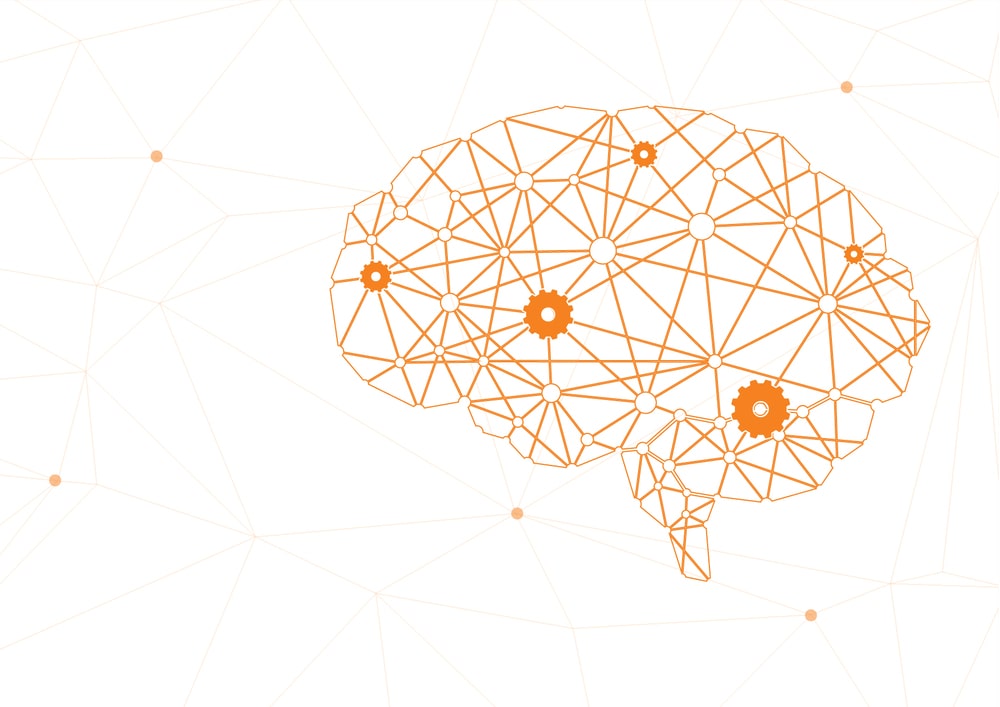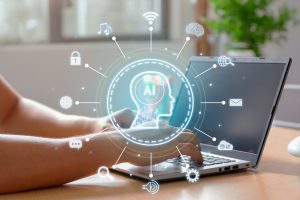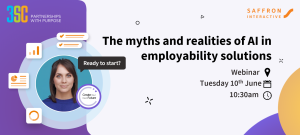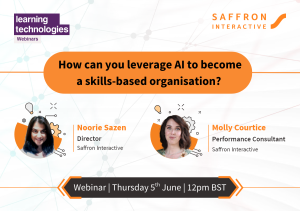Artificial Intelligence is poised to take over – but will it benefit learning technology, or compromise it?
Fearing the machine
Renowned theoretical physicist and futurist Steven Hawking considered Artificial Intelligence (or AI) many times throughout his life. At one point, he said “AI could be the biggest event in the history of our civilisation. Or the worst. We don’t know if we will be helped by AI… or conceivably destroyed by it.”
The very fear of AI ‘taking over’, in the style of the terminator, triggers a basic fear – the loss of free will. While we’re light-years away from being overcome by robots, perhaps these fears aren’t as sci-fi as they seem.
AI algorithms surround us. They show us Google content we are most likely to read, play us songs we are most likely to listen to, and show us clothes we are most likely to wear. The issue is if we only experience content which an algorithm has decided we’ll like, are we exerting our own choice? Or is free will being supplanted by commercially controlled AI?
Understanding the machine
What does this mean for elearning? Intelligent elearning is based on behavioural and neuroscience to embed change by discerning how humans make choices. But if our choices are decided by AI, what relevance will behavioural insights have in our learning and development?
The key fact is that human engagement, creativity, and emotion isn’t going anywhere. The benefit of using behavioural insights in elearning is in its ability to present information in a way that is emotive. This makes it more likely to create knowledge transfer, retention and application in the workplace. In this way, the use of behavioural science isn’t invalidated by AI.
Behind the discourse on whether AI is detrimental or beneficial to humans, is the human creating and controlling the AI. It’s vital to consider this actor in the AI question. Frankenstein’s monster was created by Dr. Frankenstein. The Universal Turing Machine was created by Alan Turing. And Saffbot was created by our developer, Ali.
In each case, it is human cognition which has created AI. Thus, it’s human cognition which lies at the root of AI behaviour, and will be consistently informing its behaviour. So again, using behavioural insights into the design of learning technology will remain vital.

Embracing the machine
Before he passed away, Hawking shared another thought: “Perhaps we should all stop for a moment and focus not only on making our AI better, but also focus on the benefit to humanity.”
AI’s current aim is to aid human productivity and boost human potential. PwC estimated that by 2030, advances in AI will add an astonishing $15/7 trillion to the global economy. Similarly, Accenture, whose research finds that a full 85% of business and IT executives anticipate making significant investments in one or more AI-related technologies by 2020, also concluded that organisations “will use AI to amplify human existence and improve how we live and work”.
The medical industry is a great example of how this could work in practice. The internet has given medical researchers around the world instant access to one another’s detailed papers and studies on various diseases, however, no practitioner has the time to read them all. An AI platform can ‘read’ hundreds of related papers in hours instead of months, cherry-picking the salient facts and common findings. In this case, AI is accelerating key discoveries and treatment improvements, which have the potential to save lives – and therefore humanity.
Loving the machine
The AI offered in elearning has similar far-reaching potentials. Skillsbot and Chatbot, your automated learning and development trainers, also save valuable time and money for organisations. Forbes found that 53% of managers don’t want an AI-powered coach, until they actually work with one. This data was collected in 2019 suggesting that corporate managers still feel an initial bias against the increased use of AI. Importantly, once they were formally introduced to “her”, 83% reported that they “liked” their AI-Coach. Furthermore, the potentials of machine learning could allow us to unlock insights to better understand the effectiveness of our learning materials, and predict how our learners might behave. In this way, when AI is combined with behavioural insights, the optimal learning experience can be individually presented to each user.
The time we overcome our innate-human fear of giving control to inanimate objects is when our productivity potential is unleashed.
If you want to hear more about how AI and cognitive insights can create measurable skills boosts, get in touch here and we’ll help you transform your training.





